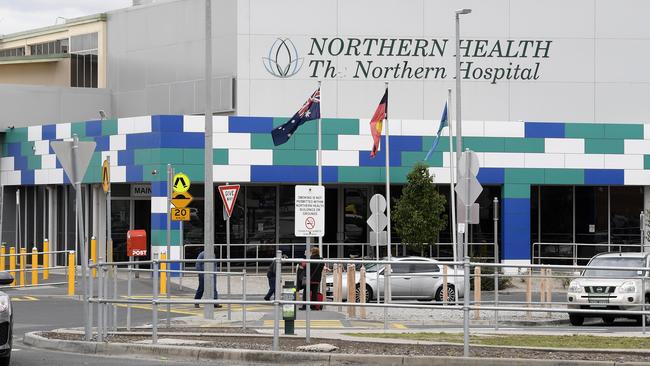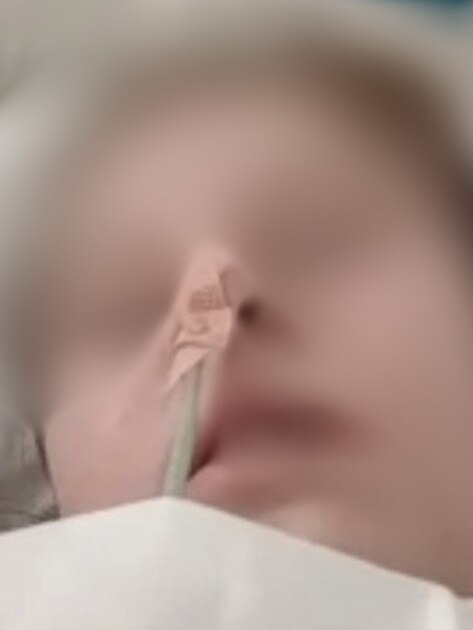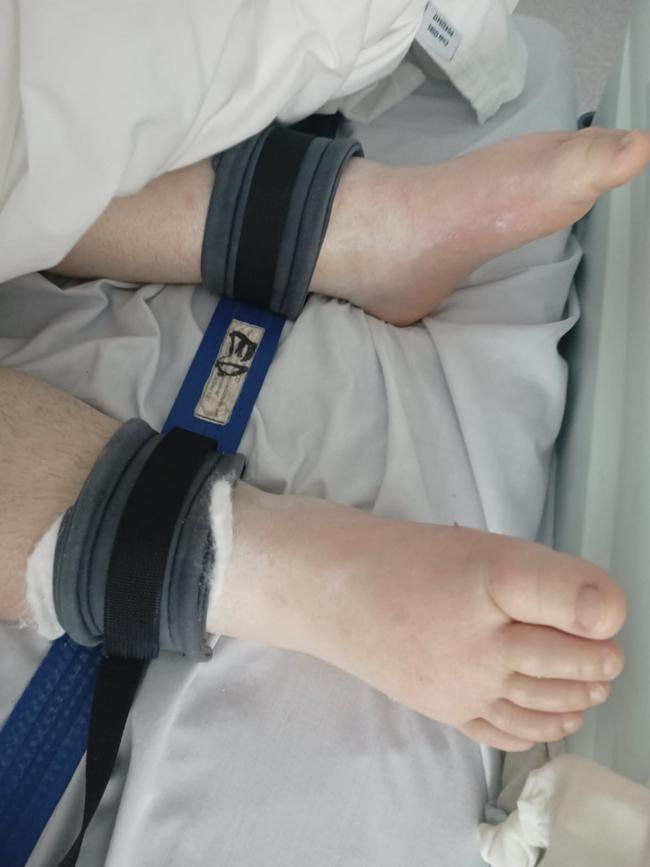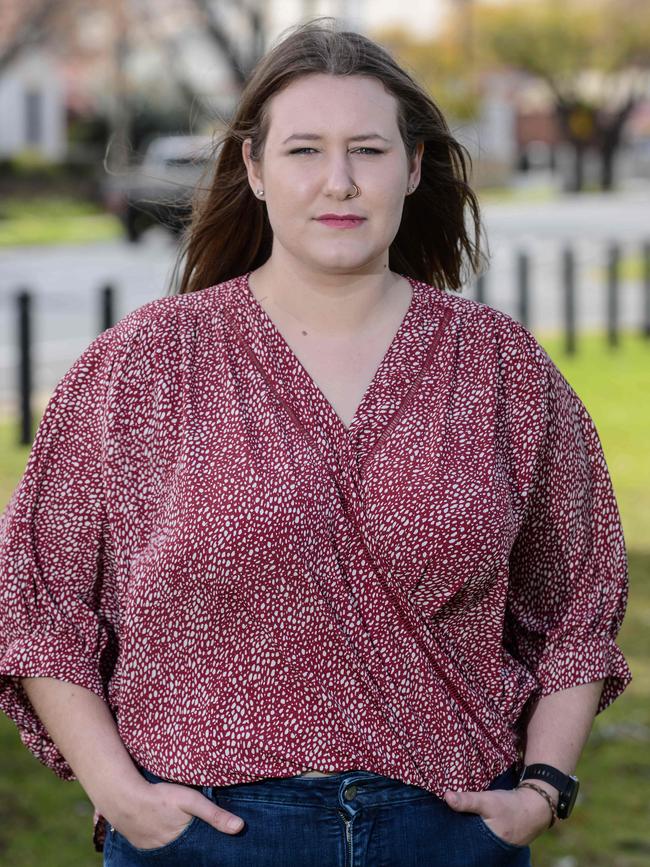Mental health crisis: Girl, 16, tied to hospital bed in a nappy for 12 days
The shocking case of a teenage girl in Melbourne tied to a public hospital bed for 12 days because of lack of facilities has laid bare the extent of our mental health crisis.
National
Don't miss out on the headlines from National. Followed categories will be added to My News.
A 16-year-old girl was kept in leg and wrist restraints in a public hospital round the clock for 12 days – and was even made to wear nappies – because there were no mental health beds available.
Staff were forced to restrain her day and night after she attacked 10 nurses, leaving one concussed.
Doctors at Melbourne’s Northern Hospital injected her with blood thinners because they feared she might get blood clots from being immobile, the teenager’s mother claims.
The girl’s hair was also left matted in knots after the ordeal.

Her mum, who asked to remain anonymous, said the length of time her daughter was shackled to her hospital bed, while waiting for a space at a high dependency youth mental health unit, was inhumane.
“I feel sick that my daughter is capable of such violence,” the girl’s mother said.
She said she understood the need for restraints for the safety of staff and her daughter.
“Despite this, it felt inhumane,” she said.


That family’s experience is not unique, with peak psychiatry bodies citing a lack of help for patients with severe mental health issues, bed-based services not equipped to provide appropriate support and a national workforce shortage.
Last financial year Australian public hospitals recorded 1522 mechanical restraint events in which items such as belts and straps were used on a mental health patient to stop them moving freely.
The Australian Medical Association found that there had been a 40 per cent reduction of available mental health beds per 100,000 population in the last 30 years.
State reports from respective chief psychiatrists show there were 640 mechanical restraint events in Victorian acute inpatient units in 2021-22, 486 in Queensland’s authorised mental health services, and 14 in South Australia, among all inpatient and community mental health services and specific mental health emergency department services; and Bureau of Health Information reports revealed 857 events in NSW public hospitals with specialised acute mental health units.

There were also 16,996 physical restraint events recorded nationally in which staff used their hands or body to stop a person moving freely.
Research suggests restrictive practises can traumatise patients and a Victorian royal commission called for them to be phased out over the next decade.
Mahalah O’Malley, a spokeswoman for mental health advocacy group Parents for Change, said it was a postcode lottery as to whether children can get services, even in the metro areas.
A Northern Health spokeswoman said restraints are a last resort and the girl’s admission was a very complex situation and was “extremely distressing for everyone involved”.
The girl’s mum said Northern Hospital took her daughter in when no-one else would.
She said there were limited places where children like her daughter could go to get better.
“The NDIS and the mental health sector have cost the taxpayer millions of dollars in emergency services managing my daughter,” the mum said.

“In an ideal world there would be no restrictive practices, but if you shut them all down then I worry the only place left for her is a jail cell.”
The girl, on a $900,000 eight month NDIS plan, has low mental IQ, anxiety, conduct disorder, PTSD, autism ADHD and possible psychosis.
She has tried to harm herself and others.
Police took the girl to Northern Hospital in October last year after she escaped respite care, smashed a neighbour’s window and tried to attack them.
Since leaving Northern Hospital the girl has been in two mental health units but only just got access to a psychologist, seven months on.
National Association of Practising Psychiatrists President Professor Philip Morris said they would love to treat patients without chemical or physical restraints but they are “necessary from time to time”.
Originally published as Mental health crisis: Girl, 16, tied to hospital bed in a nappy for 12 days


